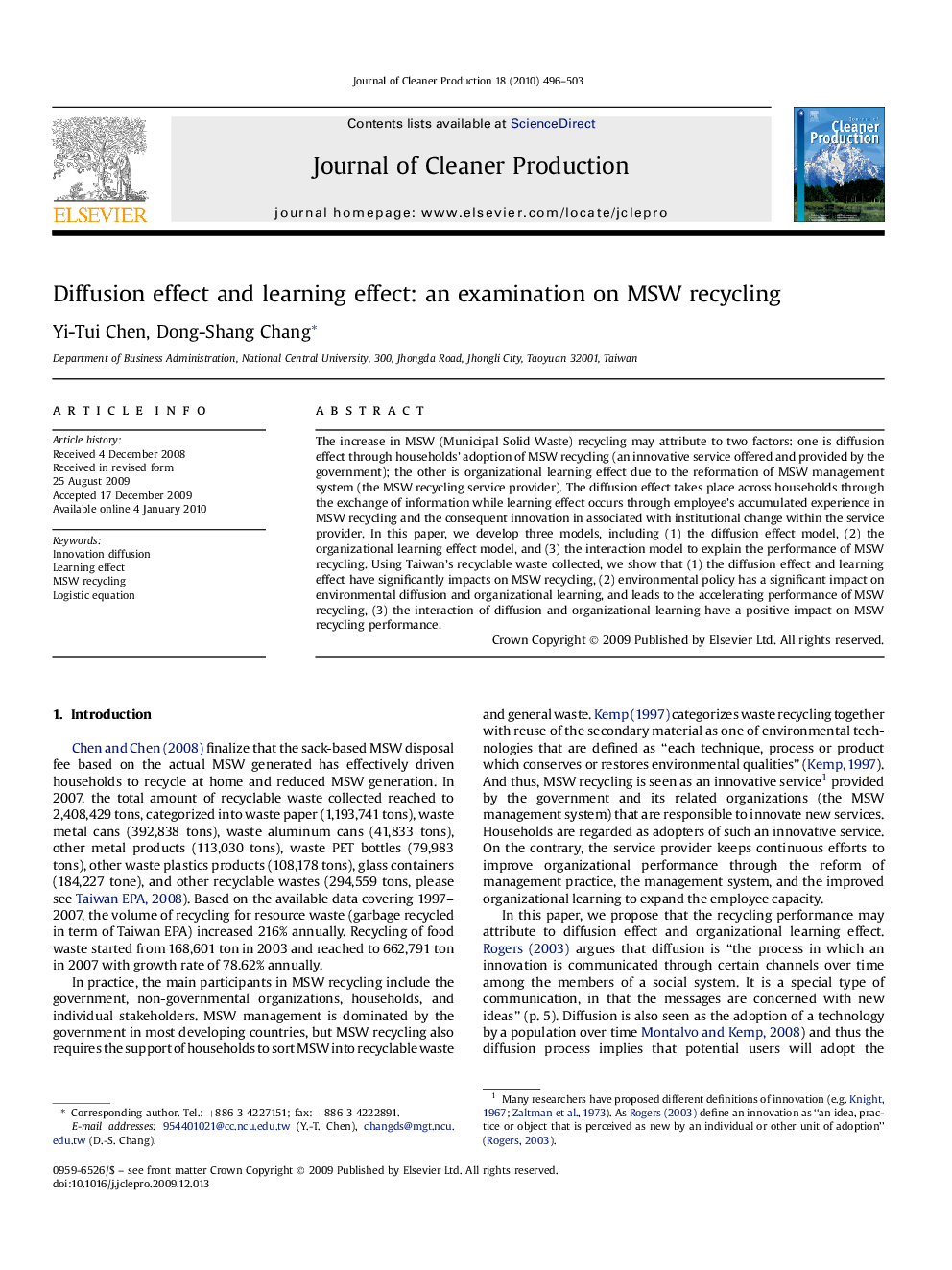| Article ID | Journal | Published Year | Pages | File Type |
|---|---|---|---|---|
| 1746442 | Journal of Cleaner Production | 2010 | 8 Pages |
The increase in MSW (Municipal Solid Waste) recycling may attribute to two factors: one is diffusion effect through households' adoption of MSW recycling (an innovative service offered and provided by the government); the other is organizational learning effect due to the reformation of MSW management system (the MSW recycling service provider). The diffusion effect takes place across households through the exchange of information while learning effect occurs through employee's accumulated experience in MSW recycling and the consequent innovation in associated with institutional change within the service provider. In this paper, we develop three models, including (1) the diffusion effect model, (2) the organizational learning effect model, and (3) the interaction model to explain the performance of MSW recycling. Using Taiwan's recyclable waste collected, we show that (1) the diffusion effect and learning effect have significantly impacts on MSW recycling, (2) environmental policy has a significant impact on environmental diffusion and organizational learning, and leads to the accelerating performance of MSW recycling, (3) the interaction of diffusion and organizational learning have a positive impact on MSW recycling performance.
